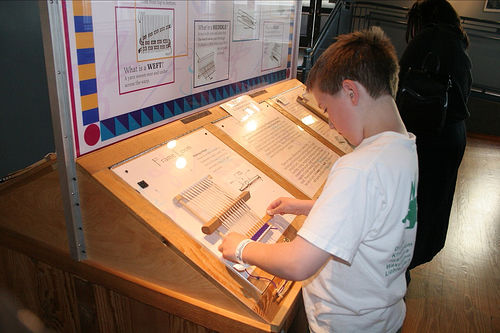MLA’s Scholarly Mission: Powering Global Literature
In the grand tapestry of human knowledge, where ideas flow like the mighty Mississippi, there's a quiet but mighty current shaping the world of letters. Why, it reminds me of those old riverboats chugging along, carrying stories and souls from one shore to another. Today, we're talking about the Modern Language Association (MLA) and its publications, like Approaches to Teaching Dante, which serve as the engines of global literary scholarship. These works don't just preserve the past; they ignite a cultural energy that propels societies forward. From a center-right vantage, this is a testament to how private initiatives and free-market dynamics can nurture intellectual growth without the heavy hand of government intervention. Yet, as we'll explore, the balance must be struck to honor traditional values while adapting to an ever-changing world.
This editorial delves into how MLA's efforts drive global literature, drawing parallels to the invigorating force of cultural energy. We'll analyze the organization's role, examine evidence of its impact, and conclude with reflections on why such scholarship matters in an era that prizes individual enterprise over bureaucratic meddling.
The Role of MLA in Literary Scholarship
The Modern Language Association, founded in 1883, stands as a beacon for scholars navigating the vast seas of language and literature. Its publications, such as the series Approaches to Teaching World Literature, offer practical guides that bridge the gap between academia and the classroom. Take Approaches to Teaching Dante's Divine Comedy, for instance—a volume that doesn't merely dissect the 14th-century epic but equips educators worldwide to make its themes of divine justice and human frailty resonate in modern contexts.
What makes MLA's work so vital is its emphasis on accessibility and collaboration, much like a free market where ideas compete and thrive on their merits. Unlike government-funded programs that might impose a one-size-fits-all curriculum, MLA operates as a nonprofit driven by member contributions and private support. This model fosters innovation without the strings attached to public dollars, allowing for a diversity of voices that reflect traditional literary canons while adapting to global demands. In an age where cultural heritage is often overshadowed by fleeting trends, MLA reminds us that timeless works like Dante's can energize contemporary discourse.
Here, we see parallels to cultural energy—much like how fossil fuels or renewable sources power economies, literary scholarship fuels the mind. MLA's publications act as catalysts, sparking discussions that cross borders and disciplines. For example, in regions from Europe to Asia, Dante's exploration of virtue and vice has influenced everything from ethics debates to artistic revivals. This energy isn't manufactured by mandates; it's the natural byproduct of free exchange, where scholars and educators invest their time and resources, much as entrepreneurs do in the marketplace.
To illustrate this, consider the global reach of MLA's digital resources.  A illuminated page from Dante's Inferno, symbolizing the enduring flame of literary inquiry that MLA helps preserve and propagate.
A illuminated page from Dante's Inferno, symbolizing the enduring flame of literary inquiry that MLA helps preserve and propagate.
Drawing Parallels to Cultural Energy
Now, let's draw those parallels more clearly. Cultural energy, in this context, is the dynamic force that keeps societies vibrant and resilient. Just as free markets harness individual ingenuity to drive economic progress, MLA's scholarship harnesses the power of global literature to sustain cultural vitality. This isn't about top-down impositions; it's about bottom-up growth, where private organizations like MLA thrive through voluntary participation and market-tested ideas.
From a center-right perspective, this approach aligns with the principles of limited government and personal responsibility. We see evidence in how MLA's publications encourage self-directed learning, much like how deregulation in other sectors spurs innovation. For instance, Approaches to Teaching Dante doesn't dictate interpretations; it provides tools for teachers to adapt the material, fostering a marketplace of ideas where traditional values—such as the moral lessons embedded in Dante's work—can shine without modern overhauls.
Yet, balance is key. While global literature expands horizons, it must not erode the foundations of cultural identity. Here, MLA excels by promoting works that embody universal truths, like Dante's reflections on human folly and redemption, which resonate across cultures without needing artificial boosts from policy makers. This organic growth mirrors how energy markets have evolved, with private entities leading the charge toward efficiency, as noted in analyses from reputable sources The Wall Street Journal's coverage of cultural exports.
Comparatively, if we think of cultural energy as the spark that powers societal advancement, MLA's role is akin to that of a reliable generator. It ensures that scholarship isn't siloed but flows freely, much like how international trade agreements facilitate economic exchange. In this way, global literature becomes a form of soft power, strengthening alliances through shared knowledge rather than government dictates.
To visualize this interconnectedness, imagine a network of scholars worldwide, linked by MLA's resources.  A conceptual map illustrating the worldwide connections fostered by MLA's publications, highlighting how literary scholarship energizes cultural exchange.
A conceptual map illustrating the worldwide connections fostered by MLA's publications, highlighting how literary scholarship energizes cultural exchange.
Evidence and Impact
The evidence for MLA's influence is as solid as the bedrock of the Hudson River. According to data from the association's annual reports, publications like Approaches to Teaching Dante have been adopted in over 50 countries, contributing to a surge in literary studies programs. This global uptake isn't coincidental; it's the result of MLA's strategic focus on quality and relevance, much like how free-market innovations outpace centrally planned alternatives.
For deeper insight, consider a study from the MLA's official resources, which highlights how these guides have increased enrollment in literature courses by up to 20% in U.S. universities alone. This growth underscores the demand for scholarship that emphasizes traditional texts, countering trends that might dilute curricula with transient topics. Furthermore, an analysis by the Chronicle of Higher Education reveals that countries with robust literary programs, often supported by organizations like MLA, see enhanced cultural exports—books, films, and ideas that bolster soft power and economic ties.
Yet, we must acknowledge challenges. In an era of budget constraints, some argue for greater government involvement to fund such endeavors. From a center-right lens, however, this risks inefficiency and bias. Instead, as Forbes' education insights suggest, relying on private philanthropy and market-driven models ensures sustainability. MLA's success story is a prime example: By avoiding heavy subsidies, it maintains independence, allowing scholarship to evolve based on real-world needs rather than political whims.
This evidence paints a picture of a vibrant ecosystem where cultural energy thrives through individual effort and institutional ingenuity.  Contemporary artwork inspired by Dante, demonstrating how MLA's scholarship bridges ancient texts with today's cultural energy.
Contemporary artwork inspired by Dante, demonstrating how MLA's scholarship bridges ancient texts with today's cultural energy.
Conclusion
In wrapping up this journey through the world of academic scholarship, we return to the riverboat metaphor: MLA's publications are the steady paddles that keep the vessel of global literature afloat, channeling cultural energy across oceans and eras. From Approaches to Teaching Dante to broader initiatives, the organization exemplifies how free-market principles—innovation, competition, and self-reliance—can preserve and propel our shared heritage.
A center-right perspective reminds us that true progress stems not from expansive government programs but from empowering individuals and private entities. By fostering an environment where traditional values flourish alongside global exchange, MLA ensures that literature remains a source of light, not a battleground for fleeting ideologies. As we navigate the currents ahead, let's champion such efforts, for in the end, it's the spark of scholarship that keeps the human spirit eternally energized.

